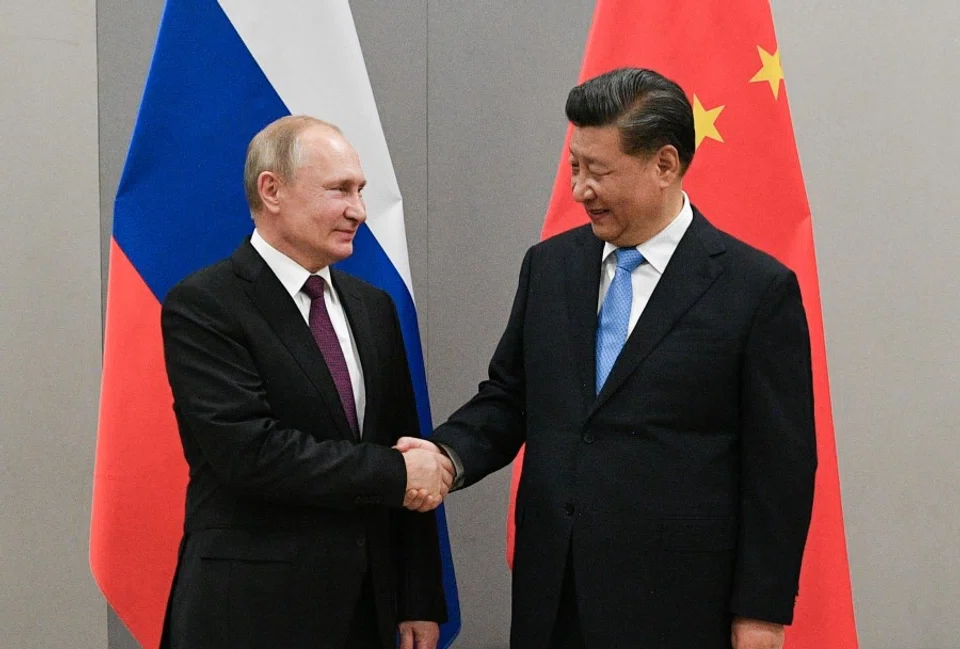Closer military ties in China-Russia power play
Project Assistant Professor Yu Koizumi of The University of Tokyo observes that as long as their respective relations with the US remain at an impasse, China and Russia's growing military ties portend greater collaboration between the two powers in the Eurasia great game.

Vostok 2018, Russia's large-scale military exercise, took place in the Eastern Military District of the Russian Armed Forces on 11-17 September, 2018. This exercise was significant because the Chinese People's Liberation Army (PLA) also participated with Mongolian troops. The Vostok exercise was conducted as a hypothetical war with China, with Japan and the US involved as main players. Drills were carried out throughout the exercise, and China seemed to remain as a hypothetical enemy in paramilitary terms. However, China's standing has changed significantly in political terms.
In 2019, the Chinese and Russian military became closer. On 23 July, Chinese and Russian bombers carried out their first joint air patrol flights over the Sea of Japan. In September, the PLA also participated in Tsentr 2019, a large-scale military exercise in the Central Military District of the Russian Armed Forces. In October, Russian President Vladimir Putin announced that Moscow is assisting Beijing in developing an anti-missile early warning system. This announcement clarified that military cooperation between Beijing and Moscow was entering the domain of strategic deterrence.


Considering China's rapid rise in the political, economic and military domains, it is natural that the country's presence is growing in Russia, with which it shares a 4,000-kilometre border, especially because Russia's energy development and arms exports have been restricted by Western economic sanctions since 2014. Because Russia regarded its relations with China as a key factor in the maintenance of global and regional stability in the 2015 Russian Federation's National Security Strategy, it was predicted that Russia would become closer to China.
However, Russia's approach was stronger than many experts expected. In terms of security, many predicted that China and Russia would not form an alliance involving mutual defense obligations to avoid becoming involved in conflicts of little interest (for example, Taiwan for Russia and Ukraine for China).
Conventional views may need to be modified because China and Russia carried out Joint Sea-2014, a joint naval drill in the East China Sea; the Chinese Fleet visited the Black Sea in 2015; Joint Sea-2016 was carried out in the South China Sea; and President Putin stated that Russia would not support the Permanent Court of Arbitration's nullification of China's claim to sovereignty over the South China Sea. Skepticism remains because the exercises were carried out in waters away from the disputed regions (the Senkaku Islands, the Spratly Islands and Crimea). Moreover, Putin's statement that China's position was not even acknowledged in the ruling from the court in The Hague was more about technicalities than substance. In other words, Russia does not directly support China's claim. Yet it is undeniable that China-Russia relations are changing. Even if Beijing and Moscow continue to evade officially stating mutual defense obligations and forming an alliance, it is clear that a relationship of military cooperation without mutual defense (entente in Russia) has already deepened to a considerable degree, which will continue.

One of the factors that moves China and Russia closer is the above-mentioned souring of Chinese and Russian relations with the US - the emergence of a common enemy triggered their solidarity. If common ground is found in the US-Ukraine question and the US-China trade friction, it will put the brakes on China and Russia getting closer.
But the US clearly stated that it is in the middle of a great power competition with China and Russia in its 2018 National Defense Strategy. This represents a change in strategic policy with a focus on a shift in the international power balance and solving individual issues might have a limited effect.
In addition, both China and Russia are huge powers in Eurasia, with a shared view that an authoritarian political system is needed to maintain and manage such states. While Russia does not welcome China's Belt and Road Initiative, China's advance is within a permissible range because it is not intended to democratise authoritarian systems in countries of the former Soviet Union Bloc. Meanwhile, China and Russia see the US, which seeks to spread the ideology of liberal democracy, as contriving to overturn their national polities and those of their partners. As long as Beijing and Moscow are at an impasse with Washington, the current relations will have long-term implications.



![[Photos] Fact versus fiction: The portrayal of WWII anti-Japanese martyrs in Taiwan](https://cassette.sphdigital.com.sg/image/thinkchina/3494f8bd481870f7c65b881fd21a3fd733f573f23232376e39c532a2c7593cbc)

